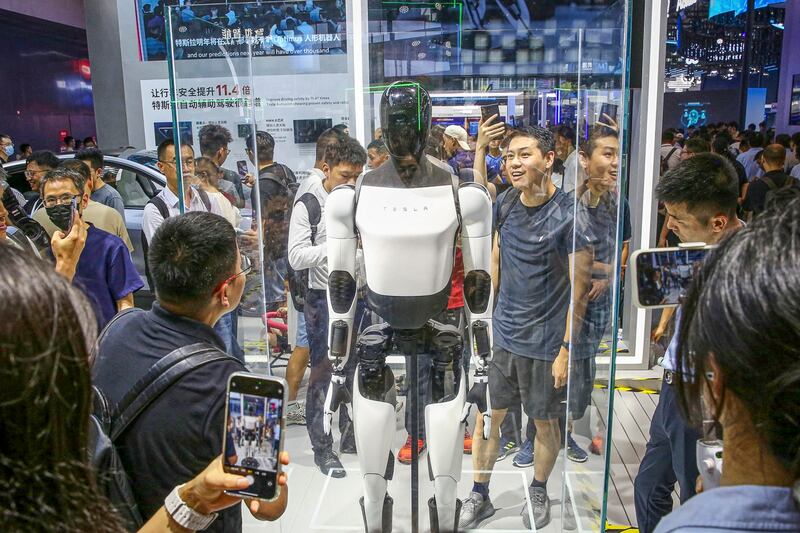Chinese authorities have included Tesla cars on an approved government procurement list, possibly signaling a turnaround for the electric car maker's fortunes in China.
The Jiangsu Provincial Government Procurement website last week listed Tesla's Model-Y rear-wheel drive version as a model approved for government purchase in a spreadsheet of permitted green vehicles for 2024-2025, quoting a price of 249,900 yuan (US$34,250) and classifying it as a "Chinese-made" vehicle.
The provincial government later confirmed the car's inclusion on the list, saying there are "no relevant documents prohibiting its inclusion," according to a July 4 report from Red Star news service.
"As long as an automaker meets certain requirements for pricing and configuration, it can be included," Red Star quoted the official as saying.
The move comes after restrictions indicating that Teslas had previously been viewed as a security risk.
In 2022, authorities in the northern seaside resort of Beidaihe banned the cars during a top secret summer conference by ruling Chinese Communist Party leaders in the town.

Authorities in Zhejiang, Beijing and Wuhan, among other places, have followed up with their own local bans since then, RFA Mandarin has reported.
The inclusion of Teslas on a government-approved list also comes amid a European Union probe into Chinese subsidies for the EV industry that could lead to tariffs on electric vehicles made in China, potentially including Tesla cars.
Quarter of the market
Electric vehicles accounted for around a quarter of new car sales in China last year, and manufacturers like Volkswagen and Nissan are scrambling to develop their own electric models to compete with the tide of cheap electric cars from China.
Tesla CEO Elon Musk met with Chinese Premier Li Qiang during a visit to China in April.
Li told Musk at their meeting in April that Tesla's operations in China were a "successful example" of U.S.-China economic cooperation, amid increasingly vocal criticism in Washington of Chinese "overcapacity" in the electric vehicle sector.
Soon afterwards, China's Association of Automobile Manufacturers added Tesla vehiclesto a list of smart vehicles deemed compliant with national data security requirements.

Tesla has a major manufacturing base in Shanghai for both domestic sales in China and exports to Europe and other regions, and cut prices earlier this year, shortly before Musk's trip.
Current affairs commentator Cai Shenkun said the move in Jiangsu appears to be a nod to the debt owed to Tesla by China's EV sector.
"Tesla's entry into China drove the development of domestic EVs," Cai said. "There wouldn't be a complete supply chain for Chinese EVs if it weren't for Tesla's factory in China."
"This has led to the emergence of Chinese EVs as a new force in the sector."
Current affairs commentator Guo Min said the authorities could always reintroduce security restrictions on Tesla vehicles at any time, however.
"They act according to the needs of the current situation, but maintaining stability is paramount," Guo said. "They banned Teslas according to the requirements at the time."
"They now no longer need to ban them, but this could just be a stopgap measure -- who knows when they could get banned again?"
Du Wen, a former legal adviser to China's Inner Mongolia Autonomous Region government, said the cars' inclusion on the Jiangsu procurement list is largely symbolic.
"This policy is inconsistent with Xi Jinping's overall emphasis on national security, and it is probably going to be difficult to truly put into practice," Du said.
Translated by Luisetta Mudie.
